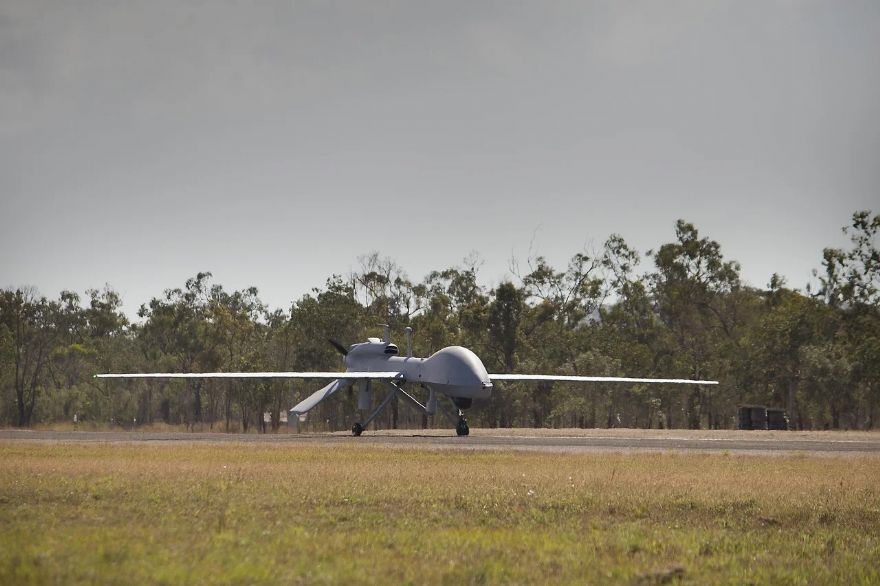
Under Project Vermeer, the
Royal Air Force has enhanced ‘groundbreaking work’ in using sustainable aviation fuel by successfully flying a 4m drone with synthetic fuel. Synthetic kerosene is entirely fossil fuel-free, made by mixing raw materials containing high sugar levels, such as food waste, with bacteria to create an oil substance that is then converted into aviation fuel using chemicals and heat.
As the process does not require large-scale infrastructure, synthetic kerosene can be produced anywhere, making it an attractive option for military deployments around the world. This development is seen as signifying the RAF’s commitment to creating a more sustainable future, as it can be used across all platforms — from remotely piloted air systems to fighter jets — with a significantly reduced carbon footprint compared to traditional fossil-based fuels.
Air Vice Marshal Lincoln Taylor said: “The RAF needs to ensure that we are at the forefront of technology to safeguard our own resilience and operational capability, while minimising our damage to the environment. Fuel scarcity and cost will only ever increase in its impact on our operations and synthetic fuels for our aircraft are one potential solution to this situation as we look to secure the objectives of the next-generation RAF of tomorrow.”
Working with British company
C3 Biotechnologies Ltd and the
US Navy, the initial trial created 15 litres of fuel in laboratory conditions. Following successful engine testing, the fixed-wing drone completed a 20min test flight in Wiltshire, providing valuable data that indicates the fuel performs consistently to a high standard.
Rear Admiral Lorin C Selby, chief of US Naval Research, said: “It is exciting and game-changing to work with our allies in the UK to develop a more efficient synthetic aviation fuel. The US Navy is committed to finding innovative solutions to operational challenges, and the ability to manufacture this fuel without large infrastructure requirements would be groundbreaking for deployed forces.”
The RAF and partners are continuing with the next phase of the project, with work underway to refine the process and develop deployable manufacturing facilities.